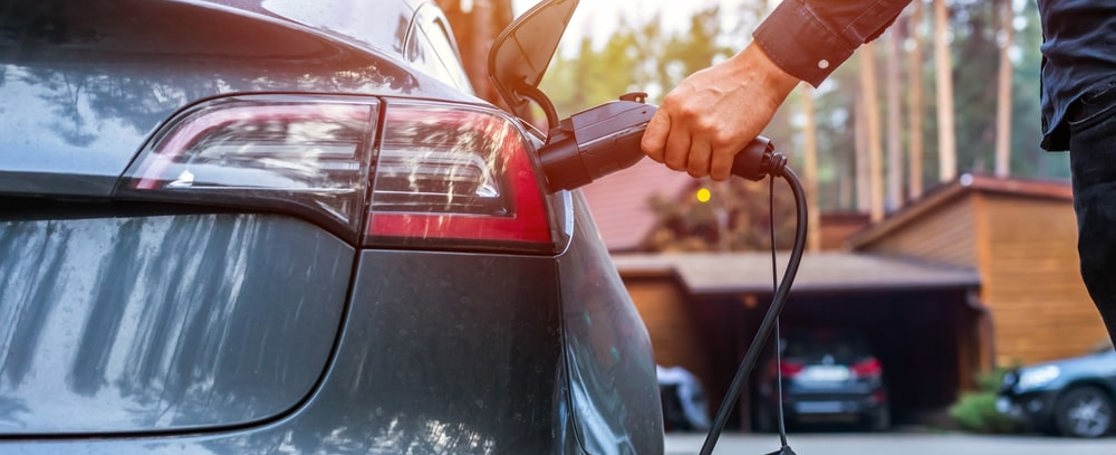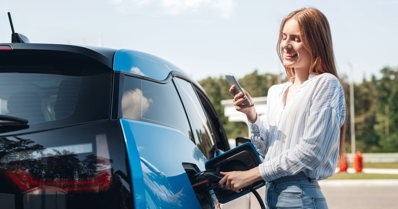Another big week of EV news and insights. Read on to find out more about the rapidly evolving EV landscape.
Covered in more depth last week, we touch on the decisive move by MPs to unanimously pass new regulations promising a better charging experience. In this week’s segment, we’ll also be covering the debunking of three common EV myths, and congratulations to Pembrokeshire County on being recognised as one of the best in the UK for public EV charging.
New regulations to improve electric vehicle charging experience for drivers
One of the biggest stories to emerge last week was the official passing of the new Government regulations introduced around EV driving. Aimed at improving the experience for drivers across the public network, this is an important step in supporting long-term EV adoption.
These new regulations focus on the following:
- A 99% reliability requirement for all chargers in the public network.
- 24/7 customer helplines advertised on charge points to deal with driver queries.
- Transparent, easy-to-compare pricing information.
- Contactless card payment methods, including Apple and Google Pay available on all rapid chargers.
This increased level of transparency will go a long way in helping the adoption of EV mobility. And will no doubt alleviate the commonly referred to ‘charge rage’ we’ve covered previously when it comes to finding and using charging stations.
James Court, CEO of the Electric Vehicle Association England, hailed the regulations as a significant step forward and said: “Better reliability, clearer pricing, easier payments, plus the potentially game-changing opportunities of open data are all a major step forward for EV drivers and should make the UK one of the best places to charge in the world.”
To learn about how to make the most out of the opportunity of being a charge point operator, read our in-depth guide here
EV innovation and how it will shape the future of driving
Influential trade magazine Automotive World delves into the world of EV innovation and looks into the barriers that are being overcome in order to achieve widespread EV adoption.
The article cites the rise in popularity of EVs in the UK with 850,000 fully electric cars on the UK roads already, as well as an additional 530,000 plug-in hybrids. Despite this growth, there is still the need for more information about the benefits of EVs over and above the well-publicised environmental benefits. One major advantage when it comes to EV vehicle ownership over petrol or diesel alternatives is simplified maintenance, for example, the need to only cover fluid applications encountered in electrified powertrains, such as reduction gear brake and coolant fluids.
Concerns over the initial investment required to transition to EV are also starting to be addressed with consumers now having more choice, with EV models becoming available across price points. Clients of ours like Nottingham City Council are testament to the fact that the initial investment can in fact deliver both environmental and cost savings, having saved over £1 million a year in running costs across their internal electric fleet since switching from petrol and diesel engines.
Driver behaviour can further enhance the EV owner experience as well as deliver cost savings. Using our app drivers have access to over 300,000 charge points across the UK and Europe, checking and planning your EV charging stops in advance will help you avoid paying the higher rates of some motorway charging points.
Automotive World recommends doing some research into the financial incentives available for EV purchases and charging station installations. Noting that currently, the UK government is offering the Plug-In grant, which offers a discount of up to 35% off the purchase price of an EV (up to a maximum of £2,500). Continued government support, innovation in EV technology providing an increased volume and variety of EV vehicles available to customers, and improvements in the EV driving experiences all point towards a positive impact on the need for widespread EV adoption.
Debunking three common EV myths
As we all know there’s a lot of misinformation about the EV industry which can cause confusion. In an attempt to combat this Smart Energy International spoke to Mel Gander, Kaluza’s Chief Operating Officer about the three most common myths she often hears about electric vehicles.
1. “Electric vehicles cost more to run than combustion engine vehicles”
According to recent research, 68% of UK drivers are hesitant to switch to an EV due to perceived high charging costs. Managing charging behaviour through software that provides the necessary data can be the key to realising these savings.
2. “You have to get up at 3am to plug in an EV to get the cheapest rates”
It is true that charging during off-peak hours can prove an essential money-saving tool. But it’s not necessary to get up in the middle of the night to plug in. Some EV charging tariffs actually offer a flat rate across all hours of the day, meaning you can save money on charging whenever you decide to plug in.
3. “If all electric vehicles plug in at once, they’ll break the grid”
Concerns about EVs straining the power grid are largely unfounded. With smart EV charging, you benefit from built-in load balancing features that automatically spread demand equally to different power outlets, making sure you’re not left in the dark with your home or commercial EV charging. Grid limitations, however, can impact charging speeds. We cover how here.
Smart Energy International also highlights a disruptive new technology known as vehicle-to-grid, or ‘V2G’ that enables energy to flow bi-directionally – from the grid into an EV and vice versa. The promise of V2G is that it will allow EVs to actually stabilise the grid and prevent blackouts, rather than causing them.
Jaguar Land Rover open their £250 million EV test facility
Exciting news this week from Jaguar Land Rover (JLR) as they unveiled their £250 million Future Energy Lab. Situated in Whitley, Coventry, the 323,000 sq. ft facility houses over £40 million worth of cutting-edge technology.
The space is designed to enable swift and rigorous testing of EVs and will focus on Electric Drive Unit (EDU) development including the pure electric versions of Range Rover, Defender, Discovery, and Jaguar models.
Andy Street, Mayor of the West Midlands, commented: “Today’s brilliant news from JLR vindicates our ambition. With the opening of this new Future Energy Lab in Coventry – a multi-million-pound investment in engineering – JLR are doubling down on their commitment to electrification in the months and years ahead. This announcement also means that local people stand to benefit hugely – equipping them with the skills they need to succeed in this sector and the employment opportunities to match.”
Pembrokeshire County praised for its excellent EV charging facilities
Finally, for this week’s round-up, we’re happy to see another Welsh local authority being hailed for its delivery of EV charging.
Our partnership with Dragon Charging has helped deliver a successful infrastructure across the county, allowing it to rank in the top 20% of UK Local Authorities in terms of chargepoint numbers, according to the article in The Pembrokeshire Herald.
With 14 of the 22 local authorities in Wales already partnered with us at Clenergy EV, we’re happy to be supporting Welsh public sector organisations in the rollout of EV charging solutions and to create a public and internal charging network that works to make the EV experience positive for all new and existing adopters.
That concludes our round-up of stories from the last week in EV news. If you’re interested in learning more about the benefits of EV transitioning, and how our software has helped facilitate countless EV success stories already, head through to our growing case studies section, or get in touch and we’ll be happy to offer help and advice to support your EV transition.



